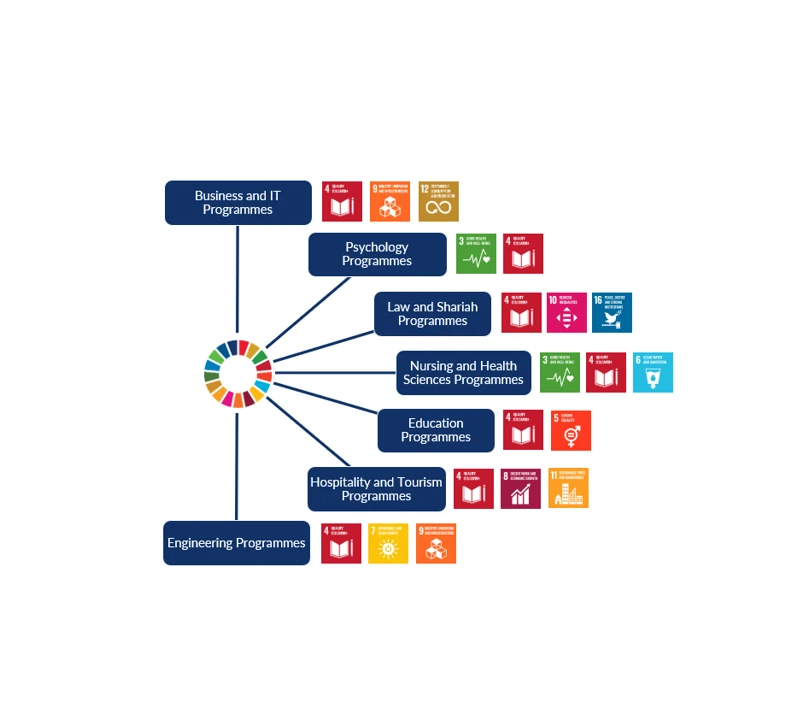Integrating Sustainability through a Connected Curriculum Framework
Villa College has institutionalized its commitment to sustainability education through the adoption of the Connected Curriculum Framework (CCF) in 2024, aligning this effort closely with the College’s Strategic Plan 2023-2027 and the principles of SDG 4.7. The CCF serves as the definitive institutional approach to teaching and learning, built on nine core dimensions of good practice for programme design. Critically, Sustainability is the first and foundational dimension of this framework, mandating that all curricula integrate the Sustainable Development Goals (SDGs) and require students to engage in action-oriented, problem-based learning connected to sustainable development practices within the wider community.
Full Curriculum Mapping and Institutional Commitment: To ensure institution-wide compliance, a comprehensive curriculum mapping process was executed in 2024. This established that 100% of all 218 academic programmes are explicitly mapped to the SDGs (full curriculum), confirming that sustainability is fully integrated across the entire university. Key alignments beyond the universal SDG 4 (Quality Education) include SDG 3 (Good Health and Well-being), SDG 12 (Responsible Consumption and Production), and SDG 17 (Partnerships for the Goals).
Two-Phased Curricular Integration: The CCF implements sustainability education through a two-phased approach to guarantee all students, regardless of their major, achieve fundamental sustainability literacy:

